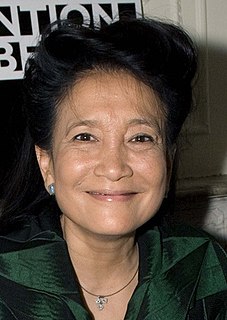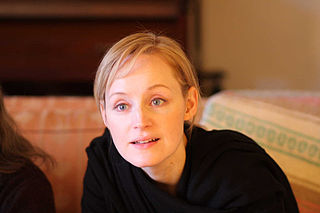A Quote by Jung Chang
I think because of their terrible past, particularly this century, the Chinese have come to accept cruelty more than many other people, which is something I feel very unhappy about.
Related Quotes
The different American experience of the 20th Century is crucial because the lesson of the century for Europe, which essentially is that the human condition is tragic, led it to have a build a welfare system and a set of laws and social arrangements that are more prophylactic than idealistic. It's not about building perfect futures; it's about preventing terrible pasts. I think that is something that Europeans in the second half of the 20th century knew in their bones and Americans never did, and it's one of the big differences between the two Western cultures.
Many people are never happier than when they get the opportunity to complain, while others are deeply unhappy with how things are but just accept the fact. Complaint occurs when we refuse to accept that things are wrong and we do something about it, even if that something is simply articulating our unease.
Childhood is less clear to me than to many people: when it ended I turned my face away from it for no reason that I know about, certainly without the usual reason of unhappy memories. For many years that worried me, but then I discovered that the tales of former children are seldom to be trusted. Some people supply too many past victories or pleasures with which to comfort themselves, and other people cling to pains, real and imagined, to excuse what they have become.
I feel that the thing about film and particularly about TV, actually, is it's being created now. We're living in the best time so far because there are many more women writing and women directing, women producing, and people are finally catching on to the fact that women want to go and buy tickets to see female characters and more than one in a film. So I actually think it's a very fertile time to be a woman over 40.
We have more information than ever before, and it is harder to avoid actually seeing what the other side is saying. Yes, we in Business insider focus on publications that we feel speak to us, but that is the same way it was 20 or 100 years ago. In the US, two million people have subscribed to the New York Times and many more millions think it is a terrible, liberal paper they would never read. We can choose to put ourselves in a bubble of only people who agree with us, but in the digital world there are many more ways of saying "Hey, here is something you might want to consider".
I'm very curious about people, and one of the most difficult truths for me to accept as a person is that I'll never be anyone else, and I will never fully understand anyone's perspective other than my own. Because I've come to some understanding of that, I feel it's this very difficult but worthwhile challenge to get as close as I possible can to that. If the only way that we can do that is through language, then that's how it has to be done.
The unhappy are egoistic, spiteful, unjust, cruel, and less capable of understanding each other than fools. Unhappiness does not bring people together but draws them apart, and even where one would fancy people should be united by the similarity of their sorrow, far more injustice and cruelty is generated than in comparatively placid surroundings.
I think that more so, my wonderful skill of dissociation came in very handy. I care very much what other people think. I'm a total pleaser. I want everyone to like me all the time. I feel like people who don't feel that way on some level are lying, but particularly female memoirists. We want to be seen and we want to be forgiven. So that occurred to me very early on.
I have come to accept that I'm a very spiritual person. However, it's interesting because part of me shies away from admitting that because I think that comes with assumptions. I think, when I was younger, I used to make judgments about people who were super spiritual. And I think it's a very personal subject.
I do believe that India needs a lot more foreign direct investment than we've got, and we should have the ambition to move in the same league many other countries in our neighborhood are moving. We may not be able to reach where the Chinese are today, but there is no reason why we should not think big about the role of foreign direct investment, particularly in the areas relating to infrastructure, where our needs for investment are very large. We need new initiatives, management skills, and I do believe that direct foreign investment can play a very important role.





































